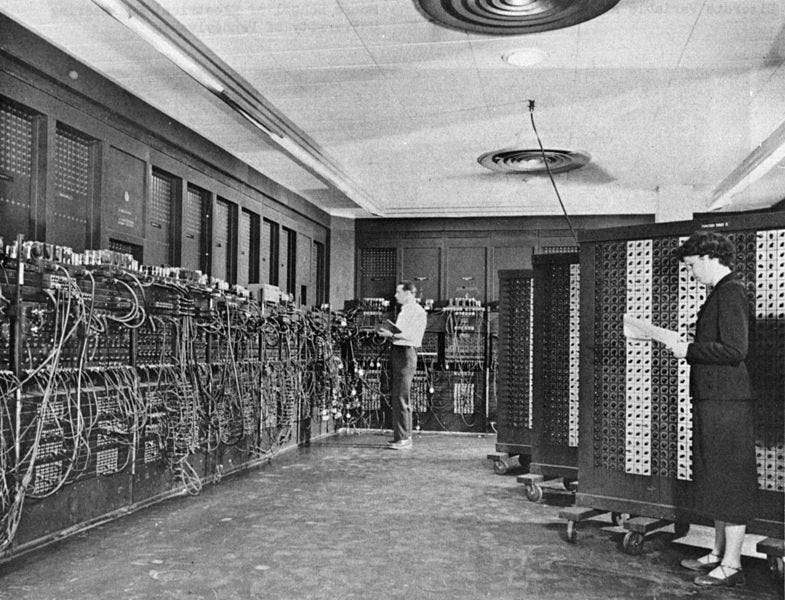☞ Exploring the Evolution of Technology

The Eniac, circa 1947 to 1955.
To explore the history of computing and technology is to see a veritable Cambrian explosion of variety. There have been a huge number of computer hardware manufacturers, tons of operating systems, and even scads of word processors (a history of which is told fantastically well in the book Track Changes). Even this collection of logos from video game consoles is overwhelming and rapidly provides the reader a hint of this massive blossoming of diversity.
Simply put, there is so much out there and we have lived through so much. In fact, software evolution is an entire field of study. Some researchers have even used this evolutionary metaphor thoughtfully, studying automobile models over time in terms of extinction and macroevolution.
That is why I was particularly excited to see two recent attempts to tame this messy history, to mine it for meaning and sense:
The first is the Whole Code Catalog, a review of various programming tools and systems that have been developed over time. It’s made by Steve Krouse, who has been doing some great thinking in this space. The Catalog includes a wide collection of tools, with even HyperCard—one of my personal favorites—making an appearance (and it even includes a link to an article I wrote about it).
And the second is a Review of Spreadsheet User Interfaces. It is exactly what it says, but it is profoundly deep history, combing through old spreadsheet software but also, delightfully, starting its discussion in the year 1665.
We need more of this kind of thinking and exploration of the variety of technologies that have appeared over time. Because unless this history and evolutionary variety has actually been lived by ourselves—e.g. I remember Zip disks, so can speak fondly and critically about them, and how they compare to storage both before and after them—too often we rarely explore this history, mine it for interesting ideas, or gems that might be worth revisiting. We simply take what we see as given, and forget the dead-ends and historical path dependence that have given us the technologies we have before us.
So what I’m staying is, Go exploring in the archives. You never know what might inspire you.
A few links worth checking out:
The rise and fall of the PlayStation supercomputers: A special moment in time when PlayStations were a basis for supercomputing.
Introduction to Artificial Life for People who Like AI: As someone who was deeply interested in the artificial life world at one point, this is really good.
Until next month.
Enjoy this issue? Please feel free it to share it with a friend. Or even just let me know; my preferred social network is email.


